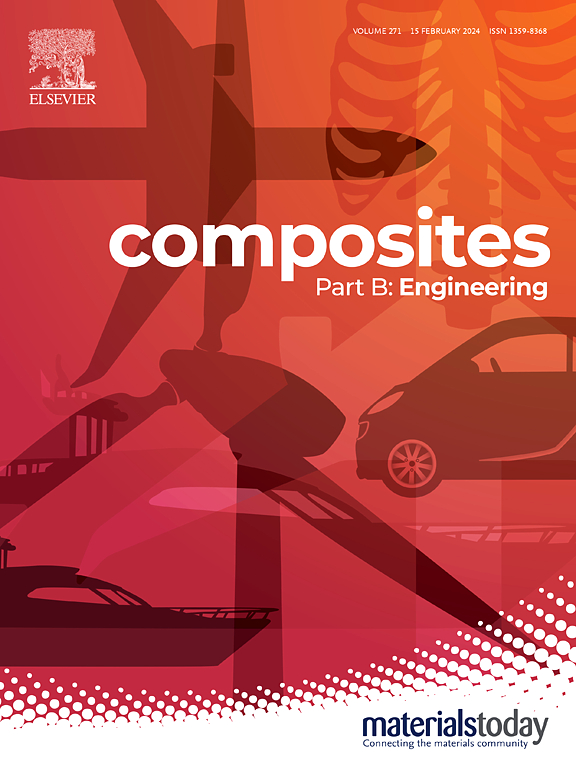High-performance reusable honeycomb metamaterials designed via twin-induced topology
IF 14.2
1区 材料科学
Q1 ENGINEERING, MULTIDISCIPLINARY
引用次数: 0
Abstract
The honeycomb structure, as one of the earliest two-dimensional metamaterials recognized and utilized by humans, has been extensively employed in various applications due to its ease of production, lightweight and high strength. However, with the ever-increasing demands for structural performance and environmental sustainability in modern engineering applications, the specific strength and specific stiffness of traditional hexagonal honeycombs can no longer meet the requirements. Inspired by the concept of twin-induced strengthening in metals, this work designed two types of modified honeycombs with exceptional mechanical properties. Experimental results demonstrated that our metamaterials exhibited outstanding relative stiffness and relative strength, even surpassing those of most three-dimensional metamaterials. Furthermore, one of the structures demonstrated a remarkable reusable capability of up to seven cycles before localized failure occurred. Additionally, by analyzing the anomalous phenomena observed during repeated quasi-static compression tests, this study revealed the critical role of self-contact effects in enabling reusability and enhancing mechanical performance. In summary, this research represents the first exploration of high-performance reusable metamaterials and suggests a promising direction for further studies in this field.
通过双致拓扑设计的高性能可重复使用的蜂窝超材料
蜂窝结构作为最早被人类认识和利用的二维超材料之一,因其易于生产、重量轻、强度高等优点,在各种应用中得到了广泛的应用。然而,随着现代工程应用对结构性能和环境可持续性要求的不断提高,传统的六边形蜂窝的比强度和比刚度已经不能满足要求。受金属双诱导强化概念的启发,这项工作设计了两种具有特殊机械性能的改良蜂窝。实验结果表明,我们的超材料表现出优异的相对刚度和相对强度,甚至超过了大多数三维超材料。此外,其中一个结构在局部故障发生之前显示了高达7个循环的显著可重复使用能力。此外,通过分析在多次准静态压缩试验中观察到的异常现象,本研究揭示了自接触效应在实现可重用性和提高机械性能方面的关键作用。总之,本研究代表了高性能可重复使用超材料的首次探索,并为该领域的进一步研究提供了一个有希望的方向。
本文章由计算机程序翻译,如有差异,请以英文原文为准。
求助全文
约1分钟内获得全文
求助全文
来源期刊

Composites Part B: Engineering
工程技术-材料科学:复合
CiteScore
24.40
自引率
11.50%
发文量
784
审稿时长
21 days
期刊介绍:
Composites Part B: Engineering is a journal that publishes impactful research of high quality on composite materials. This research is supported by fundamental mechanics and materials science and engineering approaches. The targeted research can cover a wide range of length scales, ranging from nano to micro and meso, and even to the full product and structure level. The journal specifically focuses on engineering applications that involve high performance composites. These applications can range from low volume and high cost to high volume and low cost composite development.
The main goal of the journal is to provide a platform for the prompt publication of original and high quality research. The emphasis is on design, development, modeling, validation, and manufacturing of engineering details and concepts. The journal welcomes both basic research papers and proposals for review articles. Authors are encouraged to address challenges across various application areas. These areas include, but are not limited to, aerospace, automotive, and other surface transportation. The journal also covers energy-related applications, with a focus on renewable energy. Other application areas include infrastructure, off-shore and maritime projects, health care technology, and recreational products.
 求助内容:
求助内容: 应助结果提醒方式:
应助结果提醒方式:


